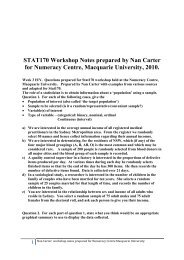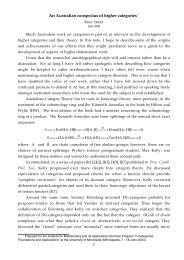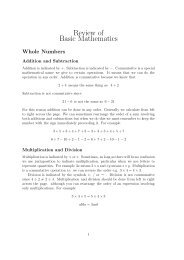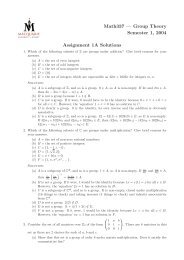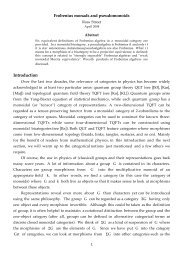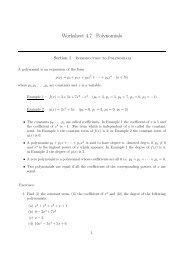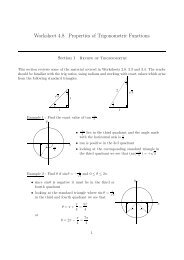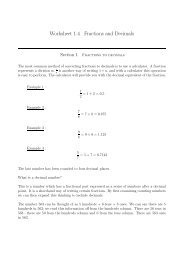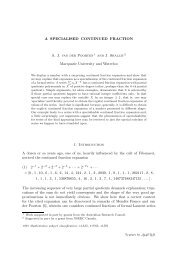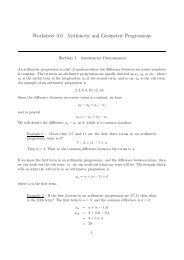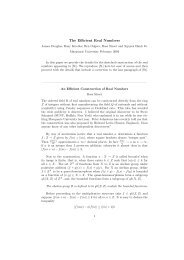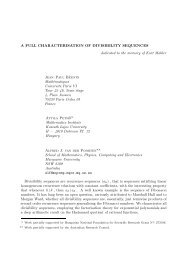You also want an ePaper? Increase the reach of your titles
YUMPU automatically turns print PDFs into web optimized ePapers that Google loves.
must combat the temptation to live with a married man she recognises as her<br />
soul mate, and who must resist the equally strong temptation to fulfil her duty<br />
to God by being a missionary in India. Her duty she finally believes lies<br />
elsewhere, to fulfil her destiny as a woman. She believes she has as much a<br />
duty to herself as a creature of God with particular talents, as to others. In<br />
her hour of greatest need, when she is tempted to become the lover of<br />
Rochester, Jane’s personal fortitude and self-reliance is sustained by her<br />
Christian principles: ‘I will keep the law given by God … Laws and principles<br />
are not for the times when there is no temptation: they are for such moments<br />
as this, when body and soul rise in mutiny against their rigour: stringent are<br />
they; inviolate they shall be’ (ch. 27). As mistress she could play the part of<br />
Rochester’s wife and fool society; but she knows she can only maintain her<br />
self-respect and personal integrity when her conscience is clear before God.<br />
Charlotte Brontë’s unconventional upbringing and her religious training had<br />
bred in her a tenacious commitment to this kind of personal truth. Jane Eyre<br />
expresses her rebellion against social convention and against what she terms<br />
‘the warpt system of things’ (preface to Jane Eyre). It is difficult for us to judge<br />
now just how radical this novel was when it first appeared. But we can get a<br />
good idea from contemporary reviews, like the influential review by Elizabeth<br />
Rigby who condemned Jane Eyre as ‘pre-eminently an anti-Christian<br />
composition’ and, if by a woman, the work of an immoral one who has<br />
‘long forfeited the society of her own sex’ (The Quarterly, December 1848).<br />
Many readers were shocked by Jane Eyre’s plea for the equality of all before<br />
God and for spiritual affinity in marriage. And when the author was<br />
discovered to be a clergyman’s daughter there was more scandal. Even<br />
Charlotte Brontë’s own godmother would never speak to her again. Charlotte<br />
replied in her preface to the second edition of Jane Eyre, reminding her critics<br />
of ‘certain simple truths’:<br />
Conventionality is not morality. Self-righteousness is no religion. To<br />
attack the first is not to assail the last. To pluck the mask from the face<br />
of the Pharisee, is not to lift an impious hand to the Crown of<br />
Thorns… appearance should not be mistaken for truth; narrow human<br />
doctrines, that only tend to elate and magnify a few, should not be<br />
substituted for the world-redeeming creed of Christ.<br />
In the last year of her life Charlotte Brontë achieved a personal happiness that<br />
had for so long escaped her, when she married Arthur Bell Nicholls (1819-<br />
1906), her father’s curate for seven years. It was not the passionate romance<br />
- 23 -




